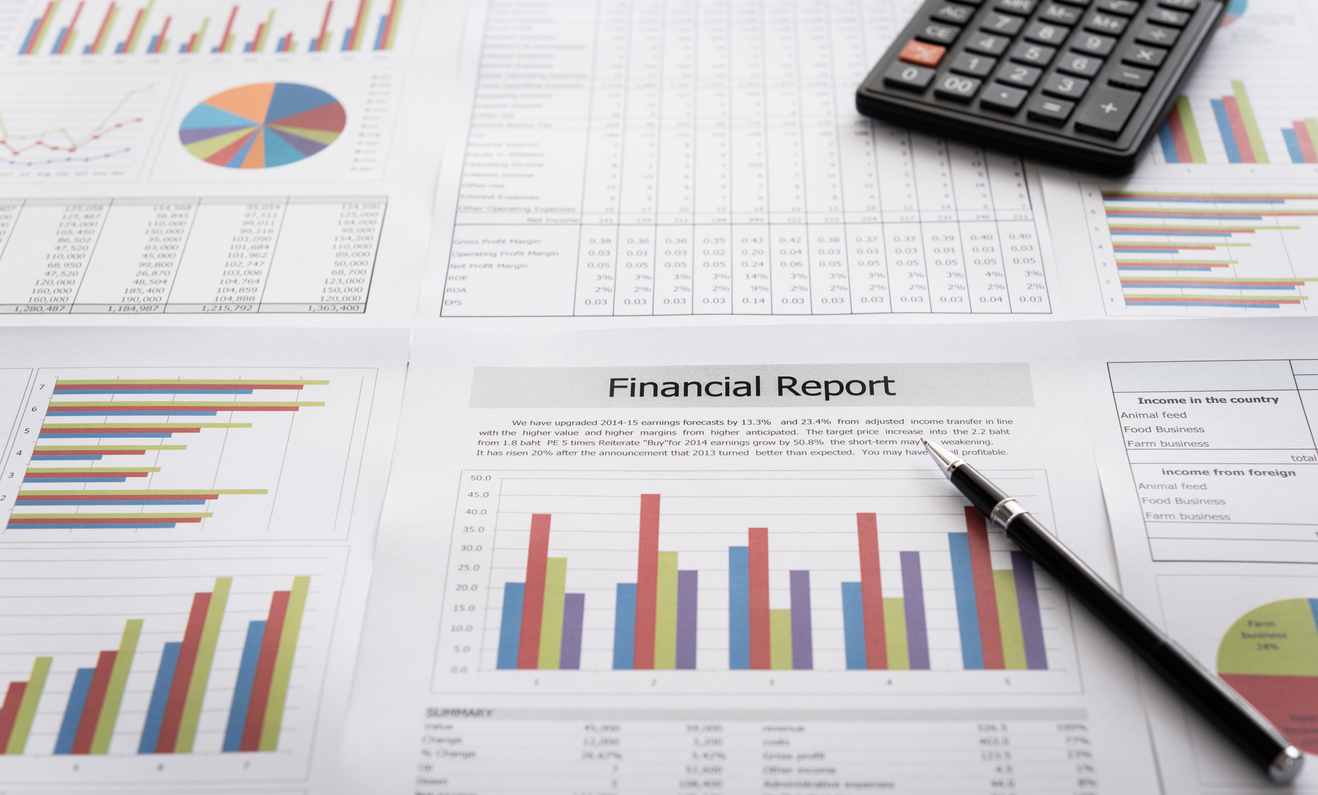Small and medium business owners tend to focus on their little corner of the economic world. We strive to create value for our customers and build our company block by block, increasing its value in the process. Those business valuation factors that are top of mind for us are microeconomic—are we meeting customer expectations? Is our product good quality? Are we building a solid reputation in our industry and community?
These are all very worthy questions, but when it comes to valuation, the fact is that economic factors on the far larger macroeconomic scale do play a critical role in the value of your company—even if you are way too busy running your business to turn on Bloomberg, CNBC or Fox Business.
Economic Factors Affect Business
Again, some entrepreneurs and small business owners mistakenly think big economic numbers that hit the news only impact big business. To them, it’s a matter of scale—and a company worth $100 billion has much more to worry about when gauging what market conditions are like than a $5 million family business.
But this is a mistaken assumption. Economic forces affecting business impact every business in America, from Apple down to solopreneurs. Macroeconomic conditions will impact the value of your company for better or for worse, so while you’re probably too busy to become an economist tomorrow, you should still strive to know how these factors can affect the business you pour your energy into every day.
When Sofer Advisors’ team of experts discuss economic conditions with clients, one of the first things business owners want to know is which factor in valuing your company is the most critical. There is no simple answer to this question, though. Different macroeconomic factors impact different industries and even individual companies within the same industry quite differently.
To make things even more complex, small and medium business owners must consider not only the direct effects of economic indicators, but also the indirect effects. Rising interest rates may not impact you directly if your company doesn’t rely on debt financing, but its indirect effect on multiples in your space may impact your valuation simply because your competitors or potential buyers do rely on debt financing.
To help clients better understand some of the key macroeconomic conditions that can affect a company’s valuation, we’ve compiled a list of the most common indicators for small and medium businesses.
Business Valuation Factors that Play a Role in Valuation
Inflation

Inflation hits retail hard, squeezing margins and challenging small business survival.
This is a topic must of us have become especially familiar with over the last few years. As inflation rises, the purchasing power of our money falls. The official measure of inflation is the Consumer Price Index (CPI), but the unofficial gauge is the pain we feel at the grocery store, the gas pump, and practically every other consumer interaction.
Inflation is dangerous to small and medium businesses. It’s especially detrimental to those in the retail and restaurant sector. These companies feel the pinch of inflation from all sides. They pay higher prices for goods, have a customer base with less disposable income, and also face labor pressure as workers demand higher wages. Inflation remains a hot topic. It continues to creep up despite governmental claims of having inflation under control.
Interest Rate Changes
Many people are only vaguely familiar with the Federal Reserve Interest Rate. Typically, if the rate is cut, the stock market goes up and people are optimistic. Rates remaining unchanged, or worse yet, increasing, produce the opposite effect. The Federal Funds Rate is set by the Federal Reserve and its actual purpose is to govern the interest rate for banks lending money to each other overnight.
If your business is capital intensive and uses loans to finance large purchases like production equipment, interest rate changes can impact the interest rates you’re charged by financial institutions. Although Federal Reserve Bank of Atlanta President Raphael Bostic recently predicted a rate cut this year, the Fed isn’t likely to cut rates close to the 2024 election to avoid accusations of trying to impact the vote.
Consumer Confidence
The Consumer Confidence Index (CCI) is released by the Conference Board monthly. It serves as a barometer for how consumers feel about the current economic situation and their personal economic future. In general, positive results from the CCI mean consumers are willing to spend more and feel their place in the economy is secure.
The CCI is an important consideration for many small and medium businesses. It’s especially pertinent for those that provide “fun” to their customers. Whether it’s entertainment, gaming, or outdoor activities, when consumers are confident and feel their income is safe, they’re more willing to spend money on such diversions. One powersports client of ours based in Florida keenly watches the monthly CCI numbers to predict how his clients will approach their own fun in the Florida sun.
Employment/Unemployment/Underemployment
Employment data can be tricky to follow. Numbers on jobs creation and unemployment come from multiple sources, including private company ADP as well as official government data. To make things more confusing, numbers are often revised up or down months after the fact. Another key metric is underemployment—when people have taken steps down in their career or are only working part time instead of full time. Think of a Silicon Valley programmer laid off by a tech firm now employed as a barista in a coffee shop.
Employment data is a vital consideration for growing companies, especially those in the market for in-demand skills. Every manufacturing leader can tell you how hard it is to hire machine operators now, with fierce competition and climbing wages making it difficult to attract talent.
Producer Price Index
The Producer Price Index (PPI) can be considered a companion to the CPI. It measures the average change in selling prices for goods/services produced by American companies. For business owners, it represents inflation on the wholesale level.
One of my clients closely follows PPI as an indicator of the health in his industry. A rising PPI means both his company and competitors are paying more for those products and services their businesses rely on. How to translate these increasing vendor costs into price increases for his customers without inducing sticker shock is a big consideration of his strategic planning.
Conclusion: Don’t Ignore Economic Factors that Impact Valuation
Although you may feel your business is too small to be impacted by economic factors occurring on a national or global scale, all you must do is look around to see how these factors play a role in your performance. From rising costs from vendors to difficulty in hiring reliable workers, what’s being reported at the macro level plays out on the stage of small business.
When my clients need further evidence of the importance of economic indicators for their company’s valuation, I like to share the story of valuations during the financial crash of 2008. In normal times like today (yes, today is normal compared to 2008!), valuations are driven by price to earnings or enterprise value to EBITDA. In the panic of 2008/2009, valuations shifted away from earnings multiples and were based on price to tangible book value. No one was willing to compensate business owners for the intangible value of their business—a devastating situation for many companies. This had nothing to do with their individual business and everything to do with the overall economy.
Although no small or medium business owner has the power to change inflation or consumer confidence, we can all learn how to protect ourselves from risks and ride the economic waves better than our competitors. Sofer Advisors specializes in helping clients understand both the current value of their business as well as what drives that valuation. We help clients create a strategic roadmap to achieve their desired valuation. This often includes techniques to reduce risk exposure to economic conditions like inflation.
To learn how we can help you navigate the maze of macroeconomic conditions, contact Sofer Advisors today for your free consultation. We’ll help you understand you needn’t be at the mercy of factors beyond your control
David Hern is the founder and chief executive officer of Sofer Advisors, LLC focusing on business advisory services related to litigation assistance, estate and tax planning, and business enterprise valuations for various privately-held and public companies. He is a qualified financial analyst with a proven ability to simply and clearly communicate analysis to boards of directors, presidents and CEOs, CFOs, controllers and private equity portfolio managers. David has been recognized for enabling organizations to determine their enterprise and equity value for a variety of situations including strategic planning, sale or IPO, mergers and acquisitions, financial reporting (common stock, stock options grants, purchase price allocations, impairment analyses, etc.) and tax compliance (estate & gift, 409A, NUBIG). Industry experience includes, but is not limited to, professional services, business service, healthcare, information technology, financial services, and manufacturing & distribution.







